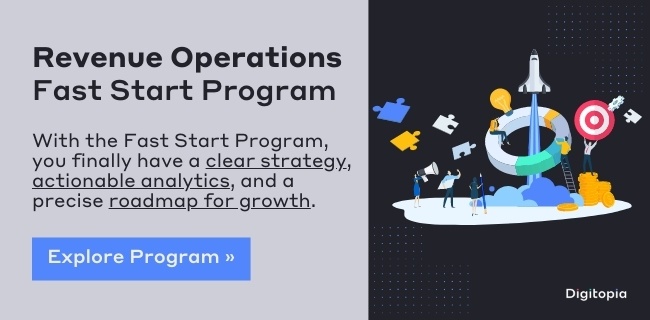What is Data Hygiene and How it can Increase the ROI of your CRM
by DJ Shirley | Updated Nov 9, 2021
Inaccurate data can lead to a number of poor outcomes on both the external and internal side of the experience. Regardless of if we are talking about website analytics data, a CRM database, or a 3rd party platform specific to your industry, maintaining accurate data is critical to create and maintain a positive customer experience.
Many organizations face the overwhelming volume of data being collected and understand the need to architect a system that best encourages the utilization of the data.
According to a recent study commissioned by Deloitte - companies on average have 17 different technology applications leveraging customer data, with an average of 28 different data sources used for generating customer insights and engagement.
With each data source and input method feeding your databases, the number of variables that can contribute to inaccurate data also grows. Establishing and reinforcing data hygiene practices become a necessity.
What is Data Hygiene, and Why it Matters?
Data hygiene refers to the collection of processes used to maintain clean data within your records or database system. Clean data refers to the accuracy and completeness of the data. If your data is clean, it can be trusted that it is up-to-date and free of any errors.
In short, clean data is accurate data.
Due to the volume of data an organization will collect on their potential prospects and existing customers. The opportunity for inaccurate data is continually growing and further emphasizes the importance to dedicate efforts to maintain clean data.
Benefits of having process around data hygiene:
Implementing data hygiene practices within your CRM database is vital for maintaining trust and engagement with your teams and tools. It can help you avoid poor exchanges with prospects or customers. Accurate data impacts multiple areas within your business, and by following data hygiene best practices, you can:
- Improve Efficiency - With clean data, your team can utilize the records in your CRM without needing to verify before engaging with the desired contact. Outreach is not the only area that gains efficiency. Your teams will also be able to conduct an analysis or report faster and with more confidence. The cumulative time saved over a year can quickly add up across your entire organization.
- Improve Team Experience - By establishing trust through clean data, your team will more readily utilize your CRM platform and database within their daily efforts. This reduces the number of independent systems created to work around a specific issue and fosters a more uniform use of your existing platform.
- Improve Customer Experience - Through data hygiene best practices, your customer information is more relevant and up-to-date with the contact's latest actions and interests. This allows your team to avoid repetitive conversations with contacts and aptly provide appropriate resources to address the specific pain point the contact is working to resolve.
- Support Data Segmentation and Enrichment - Maintaining an accurate database also allows you to better utilize automation, segmentation, and data enrichment within your CRM. If the data on a contact record is not correct, they may be inaccurately sorted into a segment not relevant to their situation or persona.
Maintaining an accurate database with clean data allows you to fully utilize the power of your team and CRM platform to create a robust and personalized experience for individuals moving through your buyer's journey. With data hygiene processes in place, your team can focus on best utilizing your CRM tool's advanced features versus spending a bulk of their time tracking down inaccurate information or correcting outdated data fields.
Focus on the Customer Experience
All of these actions are taken to streamline and optimize the customer experience. Creating a centralized entity to oversee and maintain the data associated with your customer experience has started to be recognized as Revenue Operations (aka RevOps).
Establishing clear data hygiene processes in your company is one of the 3 pillars of Revenue Operations.
Below you can access a resource proven to help provide clarity across your departments and identify the gaps within your company's established roles and processes. You can review the deliverables outlined in our Fast Start Program - a program designed to systematically address the hurdles preventing B2B organization from achieving alignment.
If you don’t want to wait and would like to talk with a RevOps specialist now, you can schedule a no obligations strategy session here.









